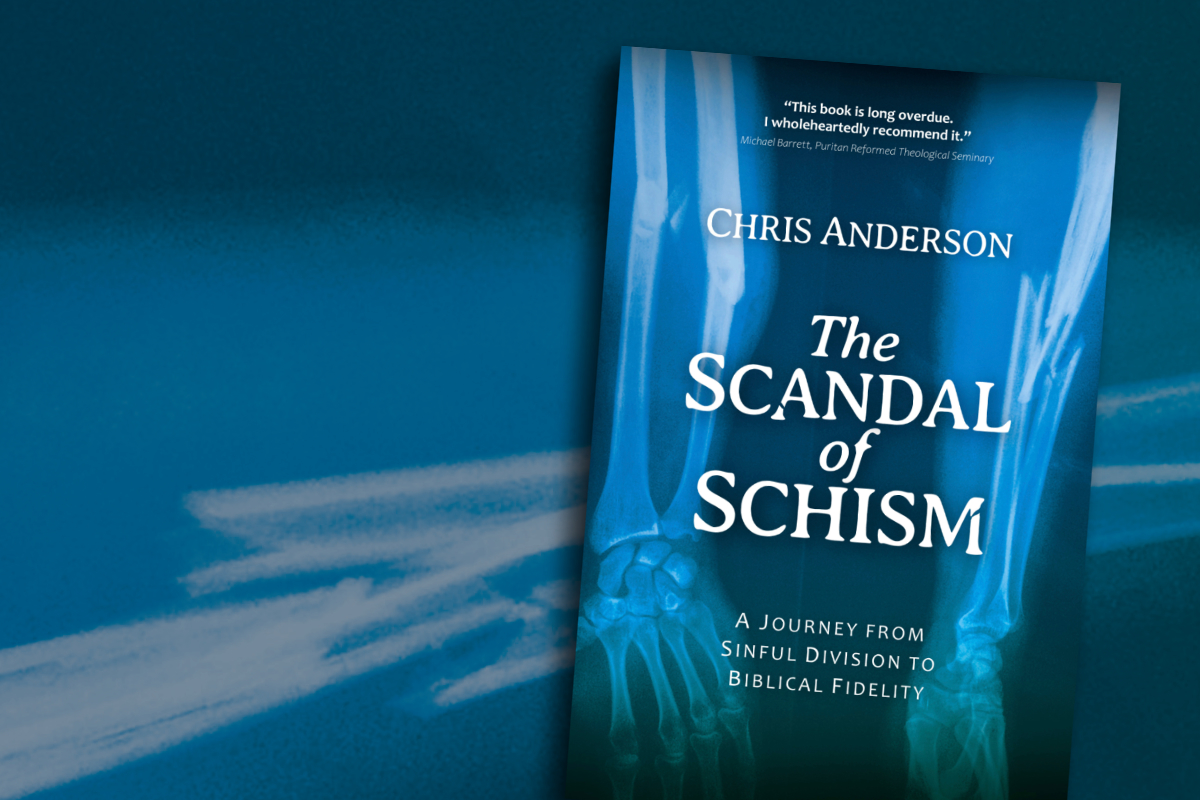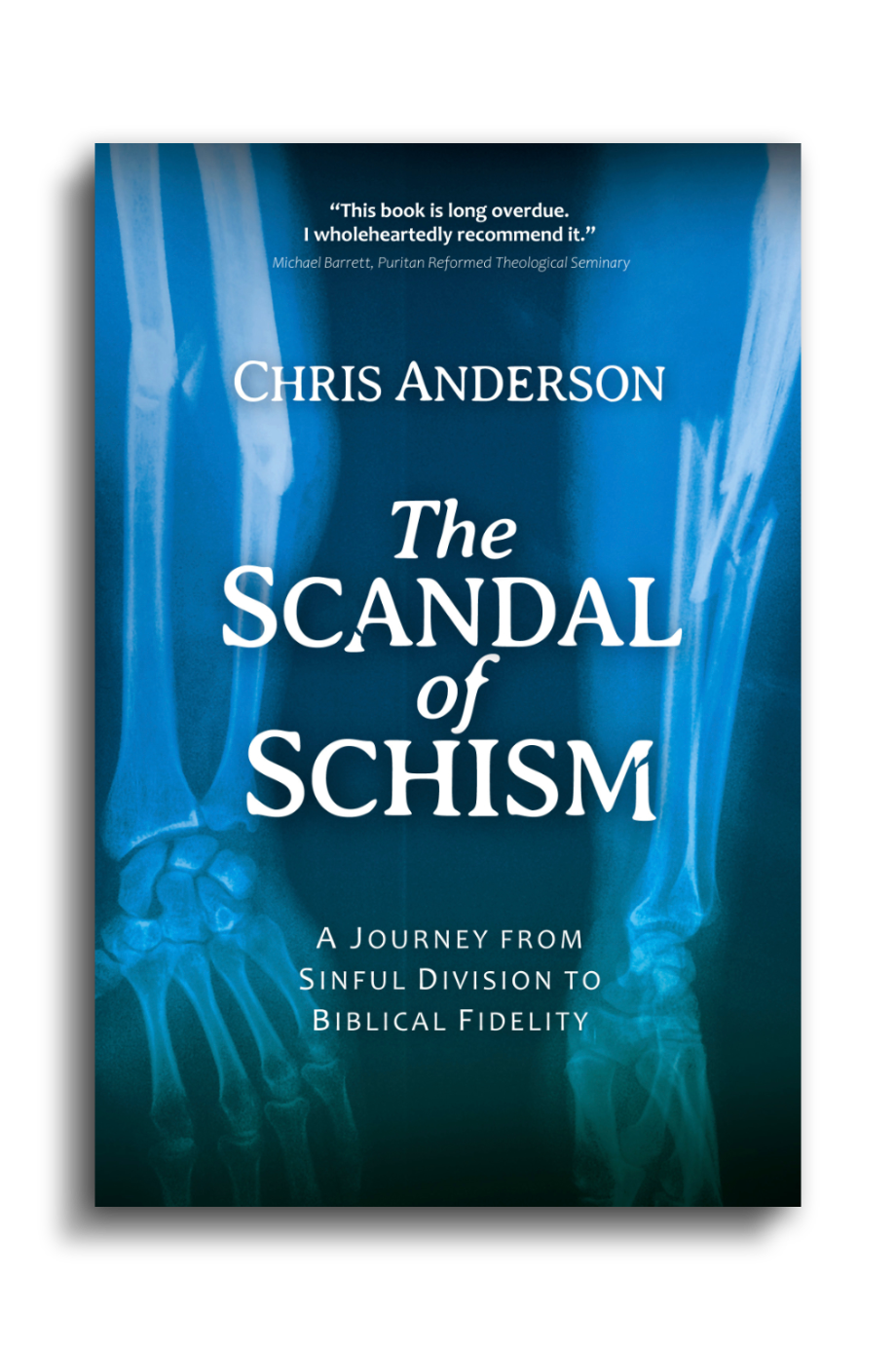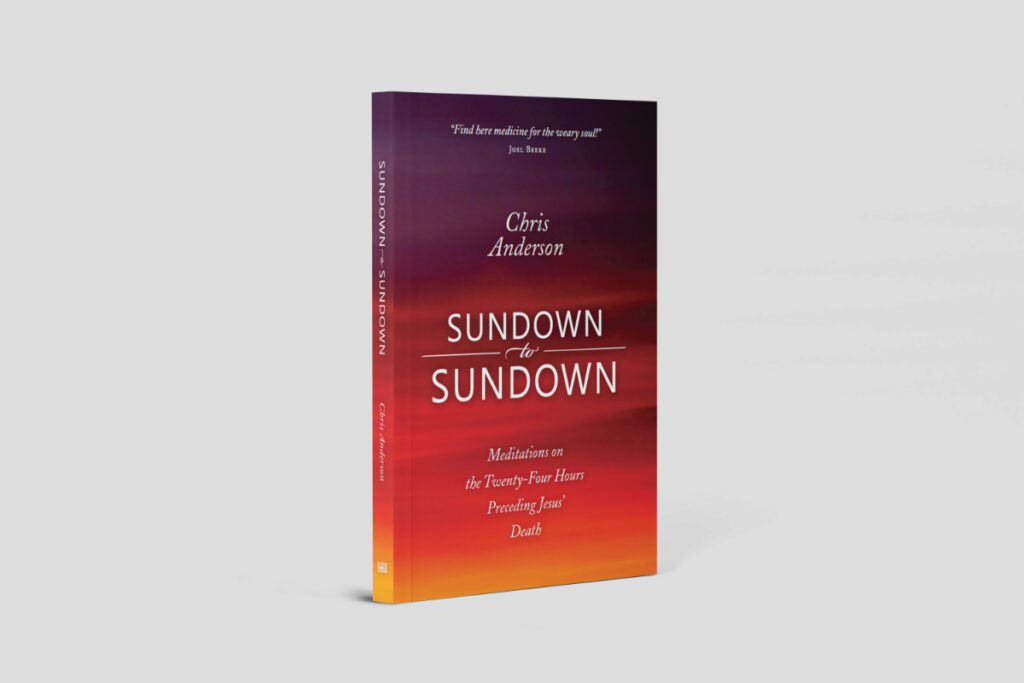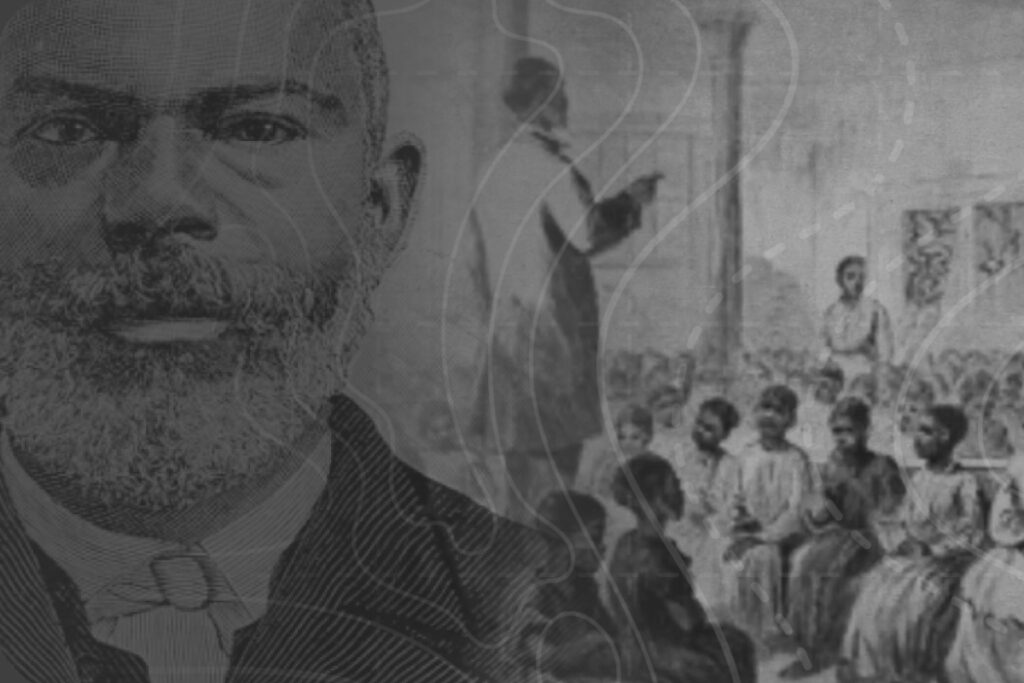Introducing The Scandal of Schism

The Scandal of Schism is a new book by Chris Anderson, available now for preorder. Learn more >>
“But if you bite and devour one another, watch out that you are not consumed by one another.” (Galatians 5:15)
The Bible commands Christians to unite around the truth and to break unity for the sake of the truth. Both unity and separation can be matters of obedience to Scripture—or of disobedience. Christians, churches, and organizations must carefully determine when they must cooperate with other believers, when they might, and when they mustn’t. It’s complicated, but Scripture has much to say about unity, separation, and schism.
I’ve written this book for three primary reasons.
First, as a former schismatic, I want to share how God has worked on my sinful narrowmindedness. I’ve become passionate about the “big-tent” collaboration achieved when believers rally around doctrinal orthodoxy with a missional mindset. As a pastor and missionary executive, I’m calling fellow Christians away from infighting and back to disciple-making.
If we separate less or more than Scripture requires, we harm the gospel’s cause.
Second, I’m burdened by the increasing division among conservative evangelicals. We’re fracturing over issues like COVID, politics, perceived “wokeness,” and endless other topics. I’m weary of church splits, turf wars among ministries, and partnerships breaking over secondary doctrinal differences. I’m weary for pastors constantly criticized over issues where Scripture allows latitude, and for missionary teams that disband because Christians can’t get along.
Third, and most importantly, my heart beats for the gospel. If we separate less or more than Scripture requires, we harm the gospel’s cause.
Confessions of a Former Schismatic
Ironically, many in my sphere agree on the fundamentals, but small issues are spoiling the orthodox vineyard. When I see faithful brothers criticized or canceled by fellow evangelicals, I want to shout, “I’ve lived in hyper-separatist isolation. You don’t want to go there!”
I spent years promoting a schismatic spirit, suspecting other believers, and looking for compromise—it was a witch hunt. I’m ashamed for being “the accuser of the brethren.” I was sincere but misguided. By God’s grace, I’ve changed to make decisions based on biblical fidelity, not preferences or the fear of man. It’s been liberating!
Fighting the Right Battles
The church is often pictured as an army in Scripture. We’re in a spiritual battle, fighting the good fight of faith. While the New Testament commands love and unity, it doesn’t advocate peace at any price. Faithful Christians must defend the faith. But I caution those fighting for the faith, especially among fundamentalists and conservative evangelicals: Be careful. Love the faith, not the fight.
Friendly fire in the church is especially demoralizing. Christians waste too much spiritual ammunition on each other. We’re already opposed by the world, the devil, and our sinful nature. Western society grows more antagonistic to the gospel, and billions haven’t heard of our Savior. Can we afford to neglect these needs while nitpicking tertiary issues?
Be careful. Love the faith, not the fight.
This book isn’t advocating spiritual pacifism. There are times when defending the faith is essential, when sacrificing unity for purity is necessary. We dare not cower when called to contend.
But whom should we fight? And when? How can we avoid friendly fire?
I believe the topic demands our attention and may necessitate our repentance. There may be times when this book has you shaking your head instead of nodding along. I may very well be charged with schism as I warn against schism. But it’s worth it to me. There’s too much at stake to settle for the status quo.
I invite you, then, to join me for a biblical, practical, and sometimes autobiographical perusal of separation and schism, all for the glory of God.
Explore the New book!
In The Scandal of Schism, Chris Anderson draws from personal experience and biblical truth to tackle the pervasive issue of schismatic division within the church. Gain understanding of historical and contemporary causes of schism. Discover a pathway to reconciliation and biblical unity.













